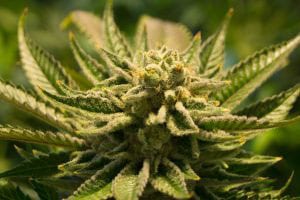Marijuana use is certainly controversial and a debated topic.
But what’s less debatable is the progress of the movement to legalize and embrace it American society – especially for medicinal use. Well, it looks like we are nearing a big milestone for what cannabis can do to treat those with certain chronic conditions such as Lennox-Gastaut syndrome (LGS).
As reported in December of 2016, GW Pharmaceuticals reported strong trial results for the cannabis-based drug it is developing, Epidiolex, to treat rare forms of epilepsy.
GW presented new data from its Phase 3 study of Epidiolex in both Dravet syndrome and Lennox-Gastaut syndrome, two rare and severe forms of epilepsy.
“We are pleased to present key findings from two pivotal Phase 3 studies of Epidiolex and believe these additional positive data reinforce the robust nature of the results achieved in two of the most difficult-to-treat epilepsy patient populations,” said GW CEO Justin Gover. “We are making very good progress toward a [New Drug Application] submission to the FDA as well as preparations for commercial launch and look forward to the opportunity to make this important new medicine available to patients as quickly as possible.”
And responses to GW’s successes have been electrifying, with its stock tripling last year on account of the Epidiolex news! It now has an Orphan Drug Designation from the FDA for the indication, demonstrating that Epidiolex could very well become a general remedy for seizures caused by epilepsy.
So what this means is two-fold:
- Obviously, those with epilepsy (and especially those with Dravet and Lennox-Gastaut syndromes) have reason to hope that effective treatments will be available to them soon. This is, of course, a huge development for those in the epilepsy community. And with the orphan drug designation, more conditions can potentially be treated. Which brings me to…
- The success of GW’s experimentation with cannabis-based treatment could knock down barriers and open doors for more drug trials using marijuana; not just in the orphan disease category, but potentially all medical needs where it’s relevant! And now that there is a financial incentive to explore marijuana’s medical benefits (thanks to GW’s soaring stock), it’s hard NOT to imagine more pharma companies will tread those waters.
What a time to be alive!
What are your thoughts about medical marijuana for epilepsy? Share them with the Patient Worthy community!






